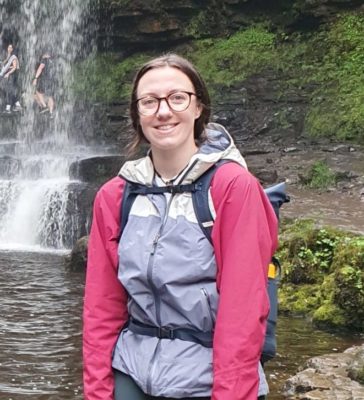
Katie Wynter
Current Employer/Organisation Name
Natural England
What have you been doing since leaving Exeter, and what are you doing now?
After graduating I decided to travel to Central America and Canada, exploring the regions biodiversity and getting PADI qualified. On retuning I did some volunteering locally before securing a job with the Bat Conservation Trust as a seasonal bat adviser. When my contract ended in the second covid lockdown, jobs in the environmental sector were limited, so I spent a year working in charity administration before securing a job in the District Level Licensing (DLL) team at Natural England, where I worked in the strategy teamlet. DLL is a landscape based approach to great crested newts conservation, so it was an interesting and rewarding role. After 11 months working in the team and a relocation from London to Devon, I secured a job in the Devon and Cornwall area team at Natural England, working on protected sites and agri-environment schemes. Now 10 months in, I am thoroughly enjoying the variety that comes with the role and the fact every day is a school day. It certainly comes with its challenges, but I work with a brilliant, supportive team, and look forward to expanding my knowledge and understanding of how we can deliver the best biodiversity outcomes in the southwest.
Why did you choose this career? And what do you enjoy most about your work?
After working for the Bat Conservation Trust and in the DLL team at Natural England, I realised I’d like to work on a project that was broader than a single priority species/group. Working on protected sites and agri-environment schemes means the target of my work might be anything from delivering advice to benefit cirl buntings up to large areas of species rich grassland or heathland restoration, and that excites me. I love how much there is to learn and how much time I get to spend out on site, and certainly see myself in the role for a while to come!
What did you enjoy most about your programme and what was the biggest highlight?
Carrying out my research project was the part of the programme I enjoyed most, spending three months out on the Cornish coast and working out what to do with all the data was a great challenge. The tutorage received prior to this in the first half of the programme set me up brilliantly to overcome those challenges. The highlight would of course have to be the trip to Kenya, camping out in the wild for two weeks!
What did you enjoy most about studying here?
I thought the level of tutorage was brilliant and the lecturers were all so approachable, which made my time at Exeter very enjoyable. I also really enjoyed living in Penryn whilst completing the MSc, as there is so much biodiversity to enjoy in Cornwall.
Why did you choose to study at Exeter?
The course suited me and my interests, and I was keen to be based in Cornwall.
What skills and experiences have been most useful for your career?
It is hard to pinpoint one thing, because ultimately it is the level of ecological understanding I developed as a result of all the skills and experiences I gained at university that have been most useful. Communicating that knowledge, however, is probably the most important, and that is something I certainly began to develop during my MSc thanks to the training we received in that area.
What advice would you give to a current student who wishes to pursue your career?
Don’t undersell yourself when applying for jobs, or be put off by adverts that seem to ask the world. The skills you develop at university are enough for entry level jobs out there, it’s just a matter of working out how to say what they want you to say! The environmental industry is super competitive, and it can be hard securing a job to begin with, but persevere and you’ll get there!
What are your plans for the future?
I’m really enjoying my current role and being back in the southwest, so I imagine I won’t be going anywhere for a little while! I want to continue soaking up all the information I can and developing my skill set in delivering land management advice for biodiversity gains.

